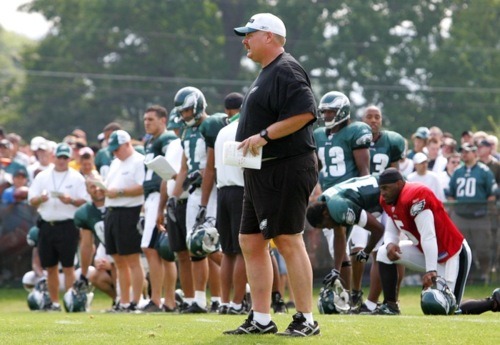
Work expands so as to fill the time available.
I’m sure everyone has come across this saying (also known as Parkinson’s Law) at some point in regard to school homework, projects at the office, or jobs around the house. But might it also apply to the NFL offseason?
In a normal offseason, NFL teams go through almost constant work. There are minicamps and weight training and film sessions and scouting and drills and preseason games. The events go on and on, filling almost the entire possible time between the end of one season and the start of the next. As the game has become more complex, we’ve largely accepted this increase as the cost of doing business. Some players complain about the workload, but it’s tough to side with guys who make millions but don’t want to work.
This interminable lockout, however, has already cut way back on the possible preparation time. Minicamps long forgotten, playbooks unable to be distributed. In lieu of “voluntary” workouts, the players have organized truly optional group practices. If the work stoppage stretches into the July and August, lost more will have to be cut back.
But how essential is this lost time? Are we likely to unprepared players and disorganized teams whenever football begins again? Could 2011 be the sloppiest season on record?
Bill Parcells doesn’t think so. He told Peter King, “I always felt like you really do a better job with less time than more time because when you have less time you focus immediately on what’s of the utmost importance. Whereas when you have a lot of time to deliberate as to what to do, a lot of times you kind of get off on little tangents.”
I tend to agree with Parcells. NFL teams may not be able to plan for every contingency, but the important things will be accomplished. However, 2011 will be an interesting test of his theory, and Parkinson’s Law in general. If football is still accomplished at a high level, perhaps there was never any need for offseason programs to become so comprehensive. On the other hand, if rookies produce at an all-time low we might be able to conclude that the opposite is true.
With any luck, we’ll find out soon enough.
Photo from Getty. Originally published at NBC Philadelphia.